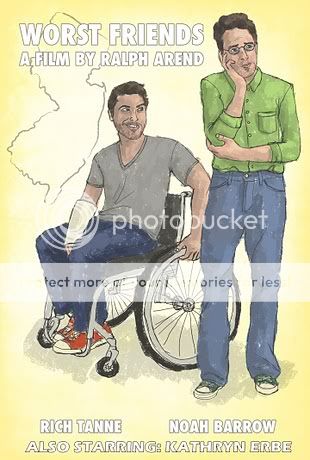
by Ken Tucker
When Law & Order: Criminal Intent brings the gavel down one final time tonight, an era will have ended: the entire Law & Order franchise will essentially be finished. Oh, sure, Special Victims Unit will come back this fall, but without Christopher Meloni and only a limited number of Mariska Hargitay appearances. The creepiest of the L&O spin-offs (all those pervs; all those children and women in jeopardy plots!), SVU exists primarily as manipulative Emmy-bait and tarnishes the Law & Order legacy. No, it’s Criminal Intent‘s departure on Sunday night that signals a singular TV institution’s end.
Once upon a time, the original Law & Order existed as a clever throwback to TV’s earliest, just-the-facts-ma’am days of terse realism (its format was Dragnet wedded to The Defenders). Then producer Dick Wolf started churning out spin-offs and moving cast members around like a man with his own rotisserie baseball league staffed with cops and lawyers. You have your favorite mix ‘n’ match Law & Order teams (perhaps you’re most fond of Jerry Orbach and Jesse L. Martin among the gumshoes, and Linus Roache and Carey Lowell of the prosecutors?), and I have mine: give me Chris Noth and Orbach, and Sam Waterston and Angie Harmon any rerun. (I also freely confess to a long-standing crush on Carolyn McCormick’s crisp police psychiatrist Dr. Elizabeth Olivet.)
When it premiered ten years ago, Criminal Intent broke with the formula in a significant way: It was essentially a vehicle for one actor, rather than the ensemble piece that all the others were forced by Wolf to be. That’s because the outsize personality of Vincent D’Onofrio over-shadowed any actor with the temerity to squeeze into the TV screen with him. As I wrote at the time, “D’Onofrio does some of the most flamboyant detective work since David Suchet twirled mustache wax as PBS’ Hercule Poirot. As a ‘special case squad’ solver, his Goren reveals the workings of his character’s mind by physicalizing everything. He doesn’t just interrogate someone, he bends his long, wide, Gumby body around a suspect, who becomes additionally unnerved when D’Onofrio waggles a frankfurter-long finger in his face and asks cutting yet smiley-faced questions.”
Left on her tippy-toes, peering over the D’Onofrio bulk, has been co-star Kathryn Erbe. I’ve conducted a mathematical investigation to find that her Eames must have 75 percent less dialogue per episode than Bobby Goren does. While this jibes with the subtle range Erbe showed on HBO’s Oz and proves her professional generosity, it has always left me feeling badly for her, since she is so obviously superior an actress than, for example, Elizabeth Rohm, who spent a few seasons on L&O twirling her pearls as a prosecutor with a blank face and robotic line-readings.
The L&O brand has become weaker by the year, marred by bad decisions on the part of both Wolf and NBC. There was no good reason for the network to cancel what used to be referred to as “the mothership,” the original Law & Order, just as it had reached Wolf’s long-cherished goal of beating Gunsmoke as the longest-running TV drama in history. The cancellation was especially cruel given the fact that the newest iteration of the show was Law & Order: LA, which somehow managed to make Los Angeles — a mecca to colorful, weird, goofy crime — look drab, and cast as its stars a mopey Method-actor wannabe (Skeet Ulrich) and a good actor with no star charisma and a head that looked like a thumb (Corey Stoll).
L&O:CI is certainly going out on a high note. Last week’s superbly typical yet nutty hour was a classic L&O ripped-from-the-headlines entry, a satire of Spider-Man: Turn Off The Dark complete with a delightful cameo by rock-poet-memoirist Patti Smith, and Cynthia Nixon soaring higher than any super-hero as a hightened version of director Julie Taymor (“Spectacular! Brighter! Dazzle me!”).
As I said, you’ll still be able to get a fresh, if impure, stepped-on L&O fix with SVU in the fall, and heaven knows we’ll be able to watch all forms of the franchise in reruns until this rock called Earth disintegrates to a pebble. But to me, once Goren asks his final interrogation question, the whole history of Law & Order will pretty much come to a jail-cell-clang close.
Good night, Goren, good night, Eames, good night Wolf, and pleasant dreams.
Don't miss tonight the two twitter session with Kathryn and Vincent.
@USA_LawOrderCI: Chat with Kathryn at 9 PM EST and with Vincent at 9 PM PST! Tag all your tweets with #LOCIfinale and get your questions ready!
When Law & Order: Criminal Intent brings the gavel down one final time tonight, an era will have ended: the entire Law & Order franchise will essentially be finished. Oh, sure, Special Victims Unit will come back this fall, but without Christopher Meloni and only a limited number of Mariska Hargitay appearances. The creepiest of the L&O spin-offs (all those pervs; all those children and women in jeopardy plots!), SVU exists primarily as manipulative Emmy-bait and tarnishes the Law & Order legacy. No, it’s Criminal Intent‘s departure on Sunday night that signals a singular TV institution’s end.
Once upon a time, the original Law & Order existed as a clever throwback to TV’s earliest, just-the-facts-ma’am days of terse realism (its format was Dragnet wedded to The Defenders). Then producer Dick Wolf started churning out spin-offs and moving cast members around like a man with his own rotisserie baseball league staffed with cops and lawyers. You have your favorite mix ‘n’ match Law & Order teams (perhaps you’re most fond of Jerry Orbach and Jesse L. Martin among the gumshoes, and Linus Roache and Carey Lowell of the prosecutors?), and I have mine: give me Chris Noth and Orbach, and Sam Waterston and Angie Harmon any rerun. (I also freely confess to a long-standing crush on Carolyn McCormick’s crisp police psychiatrist Dr. Elizabeth Olivet.)
When it premiered ten years ago, Criminal Intent broke with the formula in a significant way: It was essentially a vehicle for one actor, rather than the ensemble piece that all the others were forced by Wolf to be. That’s because the outsize personality of Vincent D’Onofrio over-shadowed any actor with the temerity to squeeze into the TV screen with him. As I wrote at the time, “D’Onofrio does some of the most flamboyant detective work since David Suchet twirled mustache wax as PBS’ Hercule Poirot. As a ‘special case squad’ solver, his Goren reveals the workings of his character’s mind by physicalizing everything. He doesn’t just interrogate someone, he bends his long, wide, Gumby body around a suspect, who becomes additionally unnerved when D’Onofrio waggles a frankfurter-long finger in his face and asks cutting yet smiley-faced questions.”
Left on her tippy-toes, peering over the D’Onofrio bulk, has been co-star Kathryn Erbe. I’ve conducted a mathematical investigation to find that her Eames must have 75 percent less dialogue per episode than Bobby Goren does. While this jibes with the subtle range Erbe showed on HBO’s Oz and proves her professional generosity, it has always left me feeling badly for her, since she is so obviously superior an actress than, for example, Elizabeth Rohm, who spent a few seasons on L&O twirling her pearls as a prosecutor with a blank face and robotic line-readings.
The L&O brand has become weaker by the year, marred by bad decisions on the part of both Wolf and NBC. There was no good reason for the network to cancel what used to be referred to as “the mothership,” the original Law & Order, just as it had reached Wolf’s long-cherished goal of beating Gunsmoke as the longest-running TV drama in history. The cancellation was especially cruel given the fact that the newest iteration of the show was Law & Order: LA, which somehow managed to make Los Angeles — a mecca to colorful, weird, goofy crime — look drab, and cast as its stars a mopey Method-actor wannabe (Skeet Ulrich) and a good actor with no star charisma and a head that looked like a thumb (Corey Stoll).
L&O:CI is certainly going out on a high note. Last week’s superbly typical yet nutty hour was a classic L&O ripped-from-the-headlines entry, a satire of Spider-Man: Turn Off The Dark complete with a delightful cameo by rock-poet-memoirist Patti Smith, and Cynthia Nixon soaring higher than any super-hero as a hightened version of director Julie Taymor (“Spectacular! Brighter! Dazzle me!”).
As I said, you’ll still be able to get a fresh, if impure, stepped-on L&O fix with SVU in the fall, and heaven knows we’ll be able to watch all forms of the franchise in reruns until this rock called Earth disintegrates to a pebble. But to me, once Goren asks his final interrogation question, the whole history of Law & Order will pretty much come to a jail-cell-clang close.
Good night, Goren, good night, Eames, good night Wolf, and pleasant dreams.
Don't miss tonight the two twitter session with Kathryn and Vincent.
@USA_LawOrderCI: Chat with Kathryn at 9 PM EST and with Vincent at 9 PM PST! Tag all your tweets with #LOCIfinale and get your questions ready!












totally disagree. corey stoll was very engaging and had great line delivery and chemistry with Ulrich. I found Ulrich engaging and believeable and not trying to pretend to be a cop and over act as Howard pushed through all his scenes. The first half of the LOLA episodes in the original casting was far more watchable than the law side.
ReplyDelete